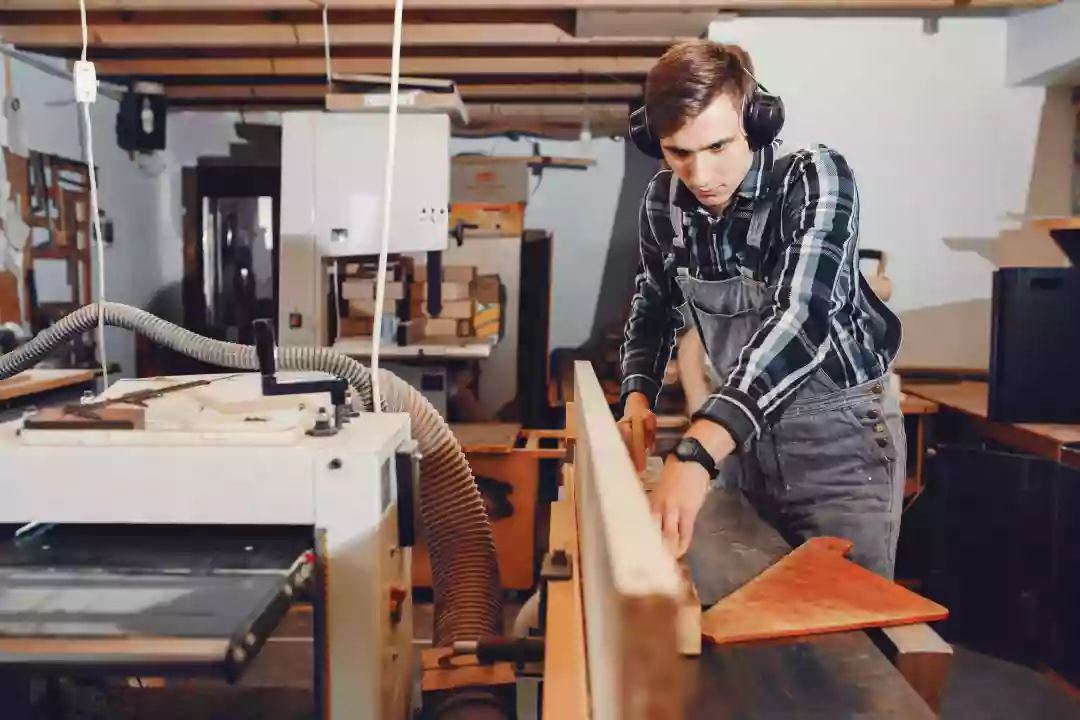What work do carpenters specialise in?
The difference between carpenters and joiners is often misunderstood. Carpentry and joinery are both professions related to the construction of buildings, but there are some key distinctions between the two. In this article, we'll explore the differences between the two, from the tasks they carry out to the common skills they share. Carpenters specialise in carrying out constructing, installing and repairing wooden structures, fixtures and furniture. Carpenters may also be responsible for maintenance and repairs on existing structures, such as window frames or doors. This can include scraping, cleaning, filling, sanding and painting. Carpenters often work with other materials such as metal, plastic and concrete which can be used to reinforce structures or create decorative touches. Carpenters can be found working on a variety of projects including house building, roofing, decks, floors, stairs and any other construction requiring precision joinery and masonry. They may also be employed to complete small jobs such as building furniture, picture frames and cabinetry.
What work do joiners specialise in?
Unlike carpenters, joiners focus mostly on manufacturing pre-cut pieces for furniture and other fixtures. They usually create door frames, windows, staircases, panelling and built-in cupboards and drawers from wood. They will often be called on to fit finished pieces into space as their precise measurements are required to ensure they fit perfectly. They are most often employed in construction but may also be sought after for expertly crafted bespoke furniture. It is important to note that joiners will not typically be involved in the cutting or shaping of timber panels, as this is the job of the sawyer. So if a customer needs panels cut to size they would need to contact a sawmill, although the joiner may be able to provide advice on the best timber for the job.

Need assistance finding carpentry and joinery near you?
Get a QuoteWhat are the differences between the two?
The main difference between carpenters and joiners is that carpenters usually construct something from scratch using plans or blueprints, while joiners typically manufacture pre-cut pieces from wood. Carpenters may also be called upon for maintenance and repair work, whereas joiners generally work on luxury products such as bespoke furniture. In addition, carpenters often work with other materials such as metal, plastic and concrete, whereas joiners mostly use wood. Due to the different tasks assigned to them, carpenters are expected to have greater proficiency in carpentry tools, such as saws, drills and hammers, while joiners are more familiar with joinery tools such as chisels, routers and dovetail jigs.
Which skills do carpenters and joiners have in common?
Despite their different tasks, both carpenters and joiners need a strong knowledge of building materials and should be able to read plans and drawings accurately. Both professions also require accuracy and precision in their work, as well as problem-solving and attention to detail. They must also have good knowledge of health and safety practices. Finally, carpenters and joiners both require the same level of craftsmanship in their respective trades. That is, they must exhibit a high level of skill in order to produce quality products. Furthermore, they must be able to work with others on a team, as well as independently.
Do I call a carpenter or a joiner?
When deciding whether to call a carpenter or a joiner, it's important to consider what kind of task you would like them to complete. If you need someone to build or construct a structure such as a deck, shed or staircase, then a carpenter is the best choice. If, however, you're looking for someone to make customised furniture, then a joiner is the best choice. It's worth noting that some joiners and carpenters may offer services that fall outside of their respective specialities; so if you are unsure about who to call, it's always worth asking for their advice. Ultimately, it is the quality of work and the understanding and guidance of the tradesperson that should help you make your decision.
In this article:
